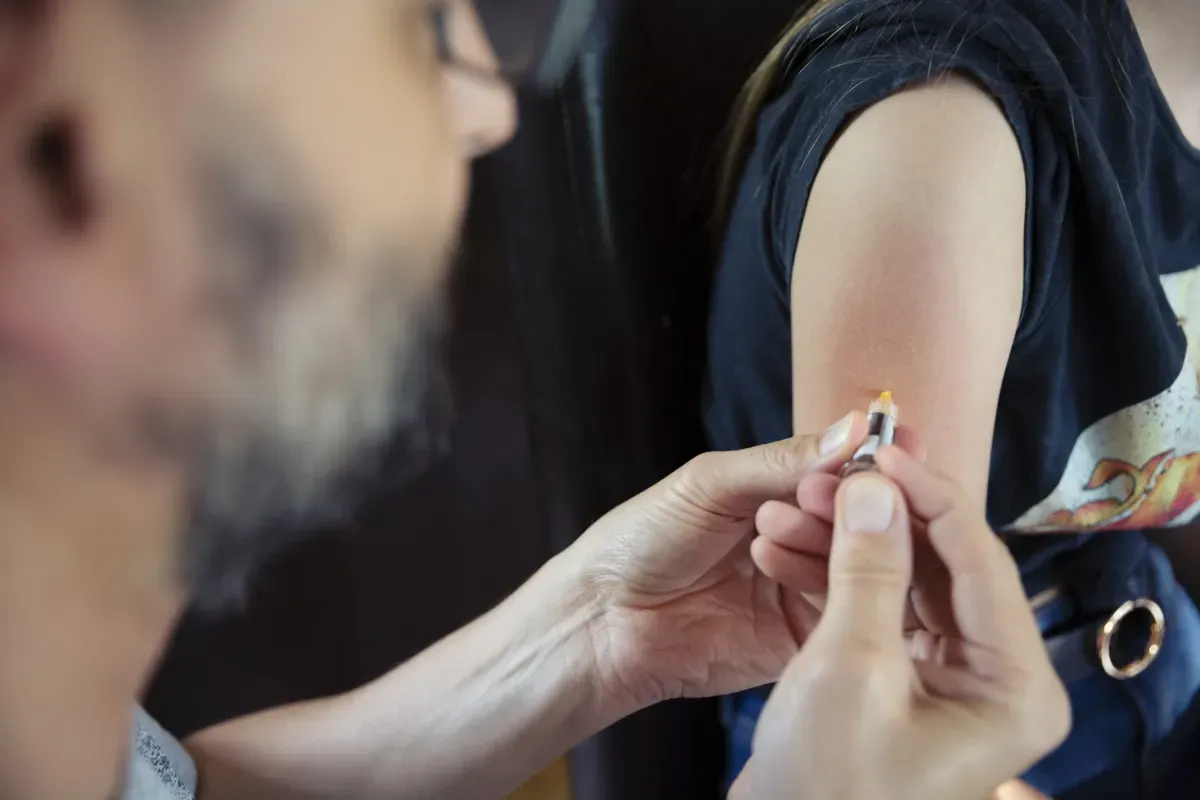Cervical cancer is one of the most preventable and curable forms of cancer, but it continues to claim thousands of lives worldwide every year. The World Health Organization’s (WHO) Global Strategy for Cervical Cancer Elimination aims to eliminate cervical cancer by 2030, and it’s a call to action that requires collective effort from governments, communities, healthcare workers, and individuals.
The HPV vaccine has been instrumental in preventing cervical cancer, and its effectiveness is backed by years of research. The first HPV vaccine was introduced in 2006, and since then, numerous studies have shown its ability to protect against not only cervical cancer but also other cancers of the genitals, mouth, and throat.
The WHO’s strategy is ambitious, with three key targets that need to be achieved by 2030:
* Vaccinate 90 percent of girls against HPV by age 15
* Screen 70 percent of women by age 35 and again at 45
* Treat 90 percent of those diagnosed with cervical disease
These targets are achievable, but they require political will, accessible healthcare, and community magic. The framework is simple: vaccinate 90 percent, screen 70 percent, treat 90 percent.
Cervical cancer starts in the cells on the surface of the cervix, which can be affected by various risk factors such as age, smoking, and human papillomavirus (HPV) infection. HPV is the primary cause of cervical cancer, and vaccination is the most effective way to prevent it.
Rwanda and Scotland are countries that have made significant progress in eliminating cervical cancer, thanks to their commitment to public health initiatives. In Rwanda, a nationwide HPV vaccination program was launched in 2017, which has resulted in a significant reduction in cervical cancer cases. Similarly, Scotland has implemented a national cervical screening programme, which has helped to detect and treat cervical cancer at an early stage.
New Zealand has also made progress in reducing cervical cancer rates, but more work needs to be done to ensure that all women benefit from these life-saving interventions. The country’s cervical screening programme is facing challenges such as low uptake among Māori and Pacific populations, which are disproportionately affected by cervical cancer.
To overcome these challenges, New Zealand needs to take a multi-pronged approach focusing on equitable access to healthcare for all women. Improving vaccination coverage, especially among Māori and Pacific populations, is a key priority. Public health campaigns tailored to these communities can help increase awareness and uptake of the HPV vaccine.
The introduction of HPV testing in 2022 has also been a game-changer in cervical cancer screening. This test is more effective than traditional Pap smears in detecting high-risk strains of HPV before cancer develops, allowing for earlier and more effective treatment. Self-testing options have also been rolled out, which can increase screening rates, particularly among women who cannot easily access healthcare providers.
The WHO’s declaration on eliminating cervical cancer offers a rare opportunity for public health to make a difference. It is a chance to eliminate a disease that has claimed thousands of lives in the past and will continue to claim lives if left unchecked. The global effort required to achieve this goal is significant, but with commitment and dedication from governments, communities, healthcare workers, and individuals, it is possible.
In conclusion, the fight against cervical cancer requires a collective effort from all corners of society. By working together, we can make a difference and create a future where cervical cancer is a thing of the past. The time to act is now, and every step counts in this quest for a cancer-free world.
Additional Resources:
* World Health Organization’s Global Strategy for Cervical Cancer Elimination
* Centers for Disease Control and Prevention’s HPV Vaccine Information
* National Institute of Health’s Cervical Cancer Awareness Month
By understanding the causes, symptoms, and treatment options for cervical cancer, individuals can take steps to protect themselves and their loved ones.

0 Comments